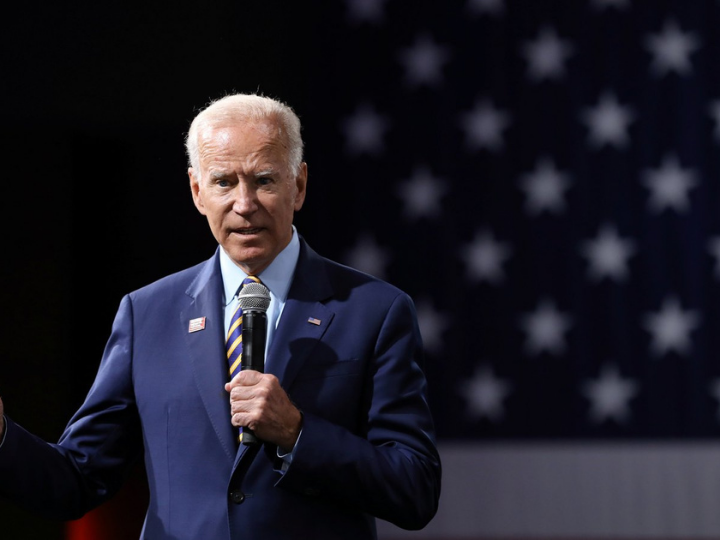by Rosa Balfour*
The orchestra singing the return of the United States to transatlantic relations struck a wrong note when the EU unexpectedly reached a Comprehensive Agreement on Investment with China at the very end of 2020—to the dismay of observers in America.
As the U.S. presidency of Joe Biden is inaugurated on January 20, 2021, the EU, again with uncourteous timing, is set to unveil measures to strengthen the international role of the euro to lessen its dependence on the dollar and address the EU’s financial vulnerabilities.
These decisions are somewhat out of tune with the EU’s proposal to relaunch transatlantic relations around global health and post-coronavirus-pandemic recovery, climate, and technology.
They are warning signs that Europe too has changed, is traumatized by the four years of U.S. President Donald Trump, and is raising safeguards for a possible return of Trumpism in 2024. The expectation that a Biden administration will be sucked up by domestic problems and focus less on foreign policy was reinforced by the storming of the U.S. Capitol on January 6, which revealed the depth of the rift within U.S. society.
The decisions were justified as a demonstration that the EU is serious about its ambition for strategic autonomy, the buzzword that now features in every debate about Europe’s international role. Rebuilding trust with allies will indeed be a difficult road ahead.
Putting up European shields to disruptive policies is, of course, legitimate. Yet the EU should invest in rebuilding its partnership with the United States precisely to fireproof transatlantic relations from a return of Trumpism—or indeed from victories of the European far right.
The degree to which Europe and the United States share similar challenges is striking: they need to reform their democracies to address citizen loss of trust; green their economies and take responsibilities for the global post-pandemic recovery; counter the assertiveness of authoritarian actors; and reform multilateralism to support a more peaceful international order. To do this, democratic and internationalist forces need to band together.
It will not be easy. An upcoming Carnegie Europe compendium takes a deep dive in the fields where the EU can propose a positive agenda to the Biden administration, identifying quick wins for the short term—thus rebuilding lost trust—and offering a candid analysis of the many roadblocks that will emerge as the transatlantic conversation gets harder.
The EU can claim leadership in the fight against the climate crisis and identify priorities to address together. But in other areas, the EU is still dependent on the United States, from security and defense matters to addressing conflict and instability in Europe’s own neighborhoods. Here, the talk of EU strategic autonomy rings hollow.
The EU pays lip service to Biden’s bid to promote the international role of democracies, but recasting democracy globally is an ambitious project full of risks. Meanwhile, on issues from technology to relations with China, divergent world views and interests will hamper attempts to find common ground between Europe and America.
But navigating these complexities with the United States after four years of loneliness must be the EU’s priority. It is not a question of blind alignment with Washington; it is a matter of deescalating geopolitical rivalries and giving a new centrality to the moderating forces of international governance.
If Europe’s goal is multilateralism as the mode for world politics, it can be achieved by both transatlanticism and EU strategic autonomy. The two are not mutually exclusive.
Going forward, three principles can guide the EU’s cooperation with the United States on key strategic dossiers.
First, the EU needs to make itself an attractive partner. Biden’s election has triggered a beauty contest among allies to get Washington’s attention. At present, London is showing all the signs of competing rather than cooperating with the EU—and the UK’s current response to human rights violations in Belarus, China, Hong Kong, and Russia is closer to the United States’ position than to the EU’s.
The EU’s attractiveness once included its claim to be a global-norms defender, and it should not forego this soft power. Other strengths are the bloc’s economic might, its presence around the world and in international institutions, and its leadership on climate issues.
Second, the EU should at times shed its assets as a bloc and show nimbleness in adapting to moving formats for cooperation. EU mechanisms and processes are cumbersome and off-putting for partners. Multipolarity and the rise of powers outside the West, including middle powers, have contributed to creating an international environment that favors more fluid and changing arrangements alongside older alliances.
Rather than rely on EU-U.S. summitry, the EU needs to use every opportunity to engage with the United States—in the UN and its bodies, through the G7 and G20, and through new formats such as a Democracy 10 or a Technology 12, even if they include only a handful of EU member states.
Third, the EU needs to avoid siloed approaches to policies and focus instead on spaces for transatlantic compromise that may cut across policy competencies.
Most of the dossiers where the EU and the United States need to work together—from the climate crisis to engaging with the Western Balkans, Eastern Europe, Turkey, and Iran—will call for convergence as well as tradeoffs. Brussels has the capacity for whole-of-government policies; it now needs a hierarchy of principles and interests to guide its conversation with Washington to match the clarity of the new U.S. administration.
Sadly, the debate on strategic autonomy has focused less on what Europe wants to be, and more on framing a balancing act, a bridge, or even a zero-sum game between geopolitical rivals. Four years of Trump have put Europeans in this mindset. But the new Europe-friendly U.S. administration alters this stage.
The opportunity to change the cards on the table will last four years. The EU should make an energetic investment in saving what still is its most important relationship.
*director of Carnegie Europe
**first published in: carnegieeurope.eu




 By: N. Peter Kramer
By: N. Peter Kramer
